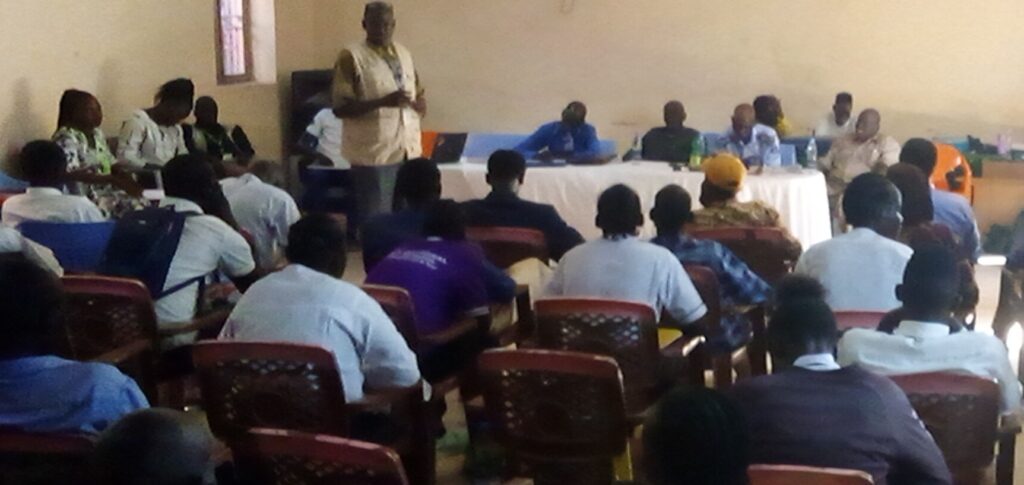The government of Northern Bahr el Ghazal State marked World Children’s Day on Wednesday in partnership with the United Nations Mission in South Sudan (UNMISS) to raise awareness and minimize harm to children.
The event in Aweil featured colourful presentations from local authorities, including the State Ministry of Gender, Child and Social Welfare, the South Sudan National Police Service, judges, teachers, community leaders, and students from various primary and secondary schools.
The 2024 theme for World Children’s Day is “Listen to the Future”.
Elizabeth Kanjela, Team Leader for UNMISS’ Child Protection Unit in Aweil, highlighted the significance of the day, saying, “This day is special for both the UNMISS Child Protection Unit and the world at large. It celebrates the rights of children and promotes the mechanisms in place to protect them.”
She noted that World Children’s Day, established by the UN General Assembly in 1954, reminds people of the global commitment to children’s rights, including the adoption of the Convention on the Rights of the Child in 1989.
James Lual Dut, the Child Protection Officer at the Northern Bahr el Ghazal State’s Ministry of Gender, Child, and Social Welfare, urged the community to safeguard children’s rights.
“Children are the backbone of this country. We must protect them, guide them, and adhere to the rules that ensure their safety and well-being,” Lual emphasized.
During the event, Samuel Ayii, a mathematics and physics teacher at Aweil National Secondary School, underscored the importance of creating a safe learning environment to promote children’s rights. “If children do not have a safe environment, they cannot acquire knowledge. We must raise awareness about children’s rights in schools and communities to ensure every child knows their rights,” Ayii explained.
Abuk Mariano, an attendee, expressed concern over the growing number of homeless children loitering in Aweil’s markets. “It’s troubling to see so many children without homes in the markets, and it’s a result of poor parental responsibility,” Mariano said.
She called on both parents and the state government to work together to improve the situation for these children.
Mariano also stressed the government’s role in ensuring that primary and secondary schools and health facilities are built and adequately equipped to meet children’s needs and provide essential services for their well-being.




